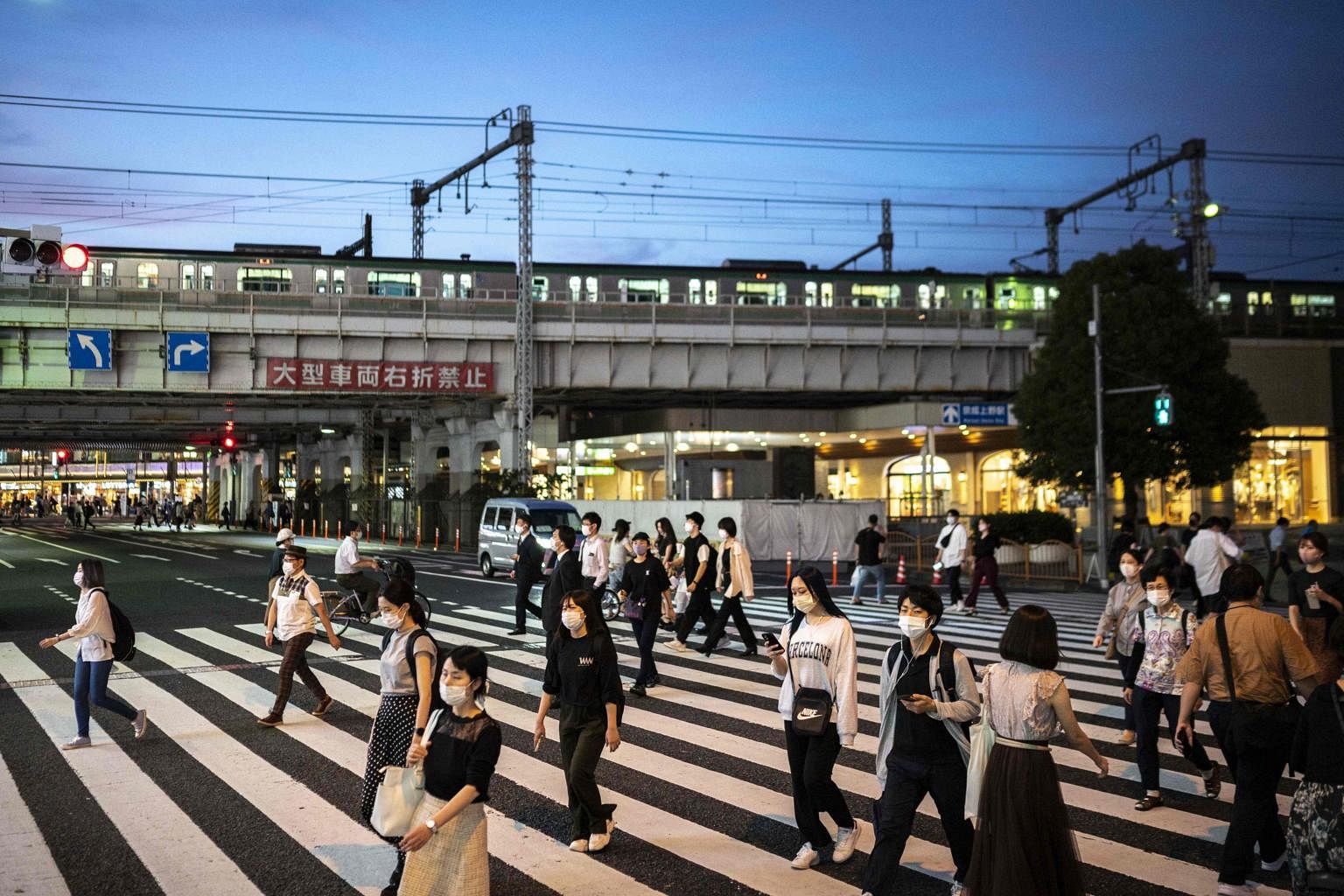Japan to shorten Covid-19 quarantine for inbound business travellers: Report
Sign up now: Get insights on Asia's fast-moving developments

Japan currently requires a 10-day quarantine for travellers, regardless of vaccination status.
PHOTO: AFP
Follow topic:
TOKYO (REUTERS, BLOOMBERG) - Japan's government plans to shorten Covid-19 quarantine periods for inbound business travellers from 10 days to three, public broadcaster NHK reported on Tuesday (Nov 2).
The easing may be instituted as early as Nov 8, NHK said. Additionally, the government plans to expand the number of daily border entrants from 3,500 people to 5,000 later this month.
Travellers currently have to face a 10-day quarantine, regardless of vaccination status. That time was shortened from 14 days last month.
The policy changes would also allow new entrants such as foreign students and foreign workers in Japan's technical trainee programme.
Japanese officials didn't give concrete comments on Tuesday on whether the country is set to ease restrictions. Foreign Minister Toshimitsu Motegi said Japan was looking at easing its border controls in stages while evaluating the infection and vaccination situation globally.
Japanese officials didn't give concrete comments on Tuesday on whether the country is set to ease restrictions. Foreign Minister Toshimitsu Motegi said Japan was looking at easing its border controls in stages while evaluating the infection and vaccination situation globally.
The government's top spokesman, Chief Cabinet Secretary Hirokazu Matsuno, said meanwhile it was under active consideration.
Shares of Japanese airlines rose Tuesday following the report. ANA Holdings was up as much as 3.4 per cent and Japan Airlines as much as 3.1 per cent, while the Topix index fell as much as 0.6 per cent.
Mr Michael Mroczek, president of the European Business Council in Japan, said while the shorter quarantine would be welcome, the bigger issue is the remaining hold on long-term visas.
"Not being able to bring essential personnel to Japan is currently the number one issue for European industry," he said.
"Not being able to bring essential personnel to Japan is currently the number one issue for European industry," he said.
The island nation enacted one of the strictest border policies among developed nations during the coronavirus pandemic, effectively banning most foreigners from entering the country unless they already held a visa.
Most of the Covid-19 border restrictions have affected students and technical workers, the Nikkei said. Business lobbies and sectors affected by labour shortages had begun to call for the government to ease restrictions.
Tourists, who had been a key driver of growth in Japan before the pandemic, are still not allowed in the country. The Nikkei report said those travelers are not included in the easing of restrictions at this time.
Vaccine checks and coronavirus testing before and after international trips should be enough to contain infections now that the pandemic has ebbed in Japan and elsewhere, said Dr Haruka Sakamoto, a physician and researcher at Keio University.
"People who have received two doses of vaccine should not be quarantined," she said. "I strongly agree that strict border controls currently taking place in Japan are causing a significant negative impact on Japan's business and international students."
"People who have received two doses of vaccine should not be quarantined," she said. "I strongly agree that strict border controls currently taking place in Japan are causing a significant negative impact on Japan's business and international students."
Japan's new coronavirus cases have seen a steep drop since its latest wave peaked in August.
In the past week, the country was down to about 200 to 300 new cases per day, and on Monday the capital of Tokyo reported just nine new cases. About 72 per cent of the country's population are fully vaccinated.

